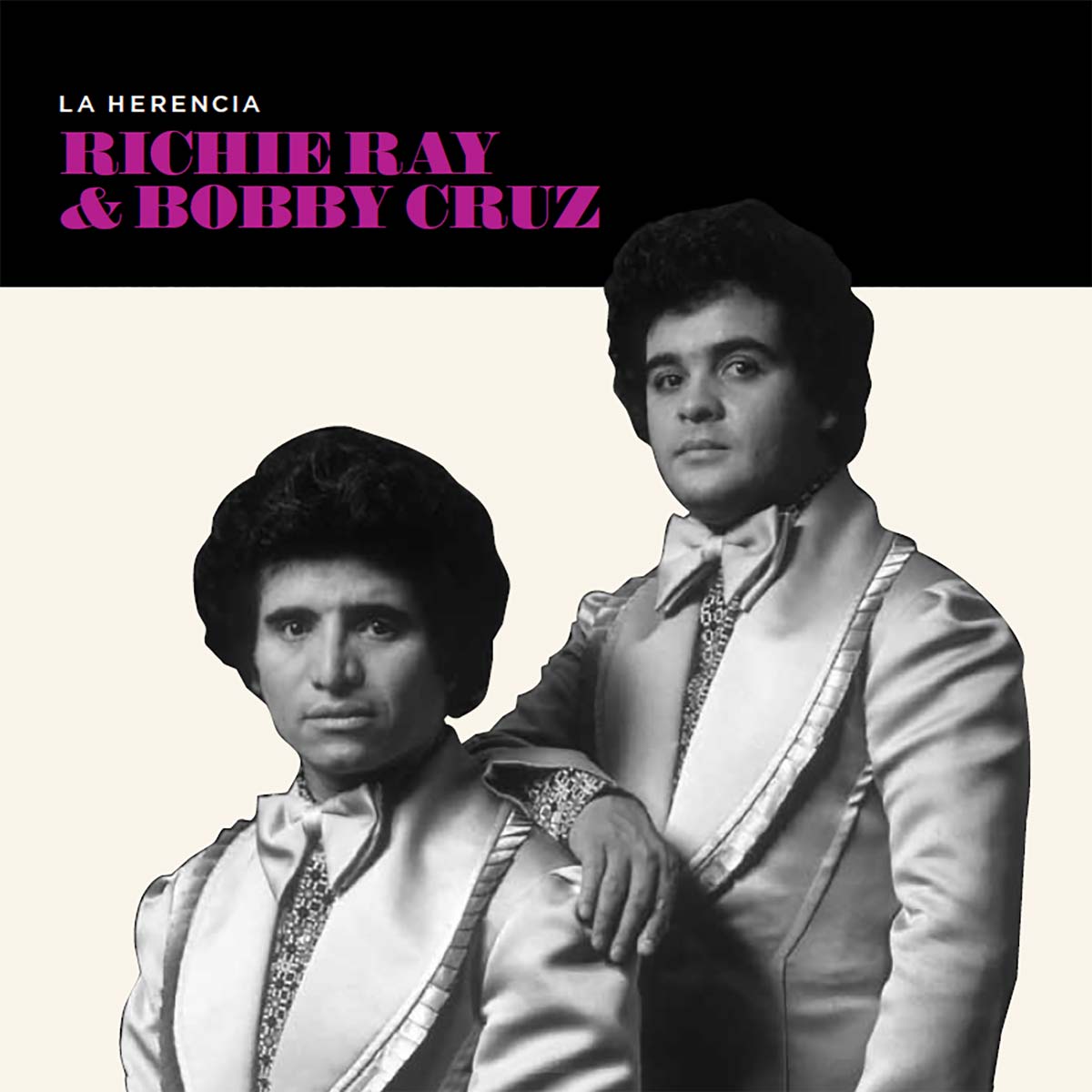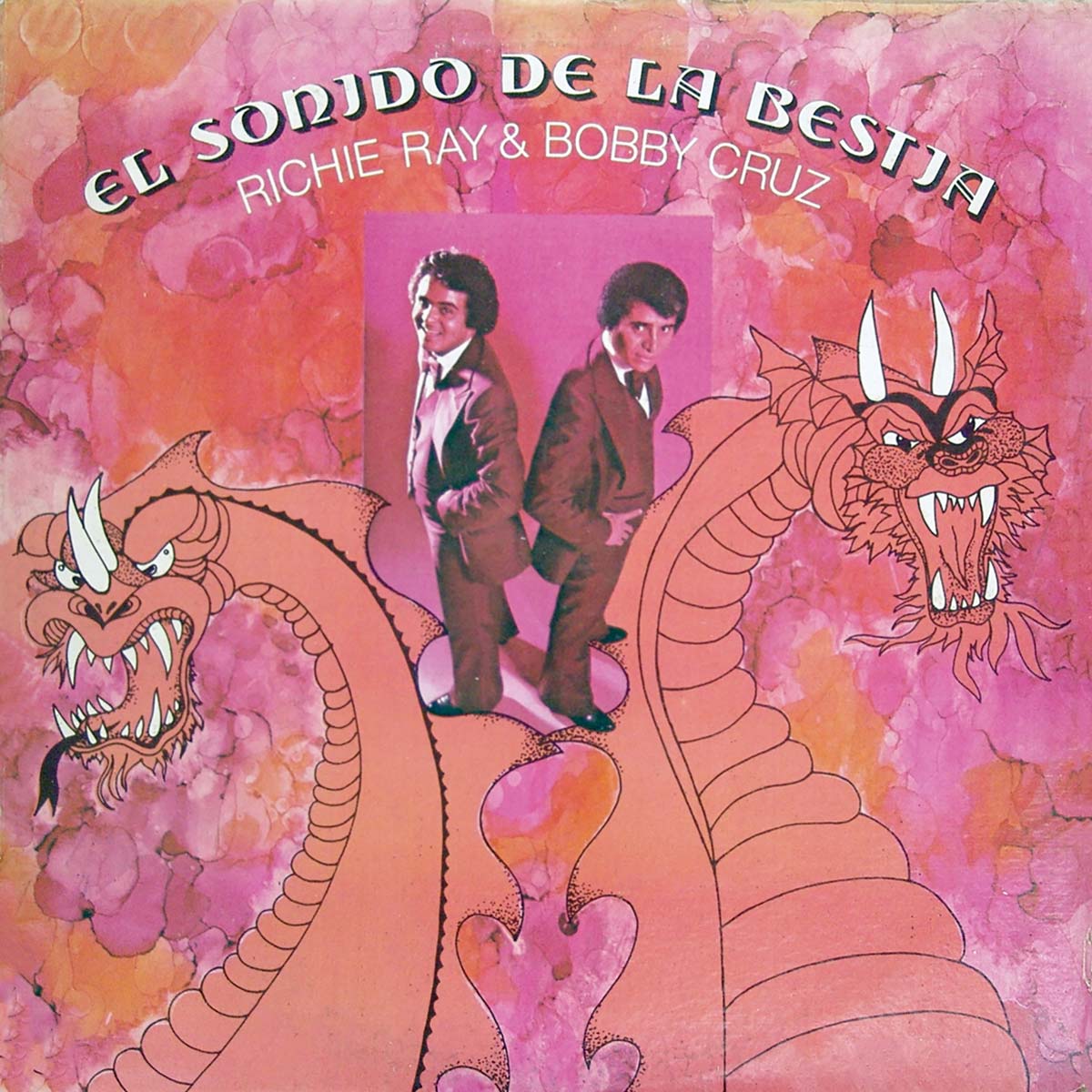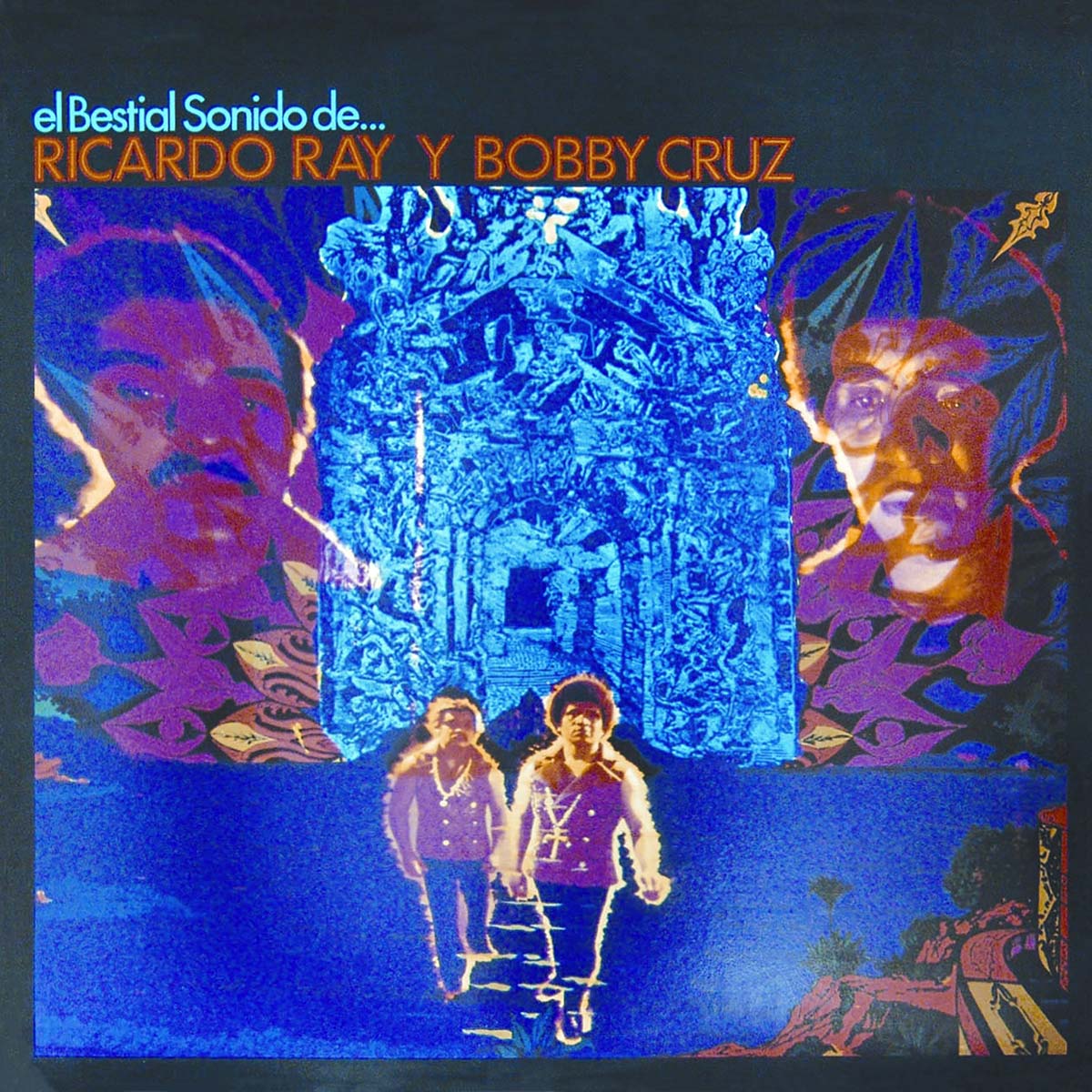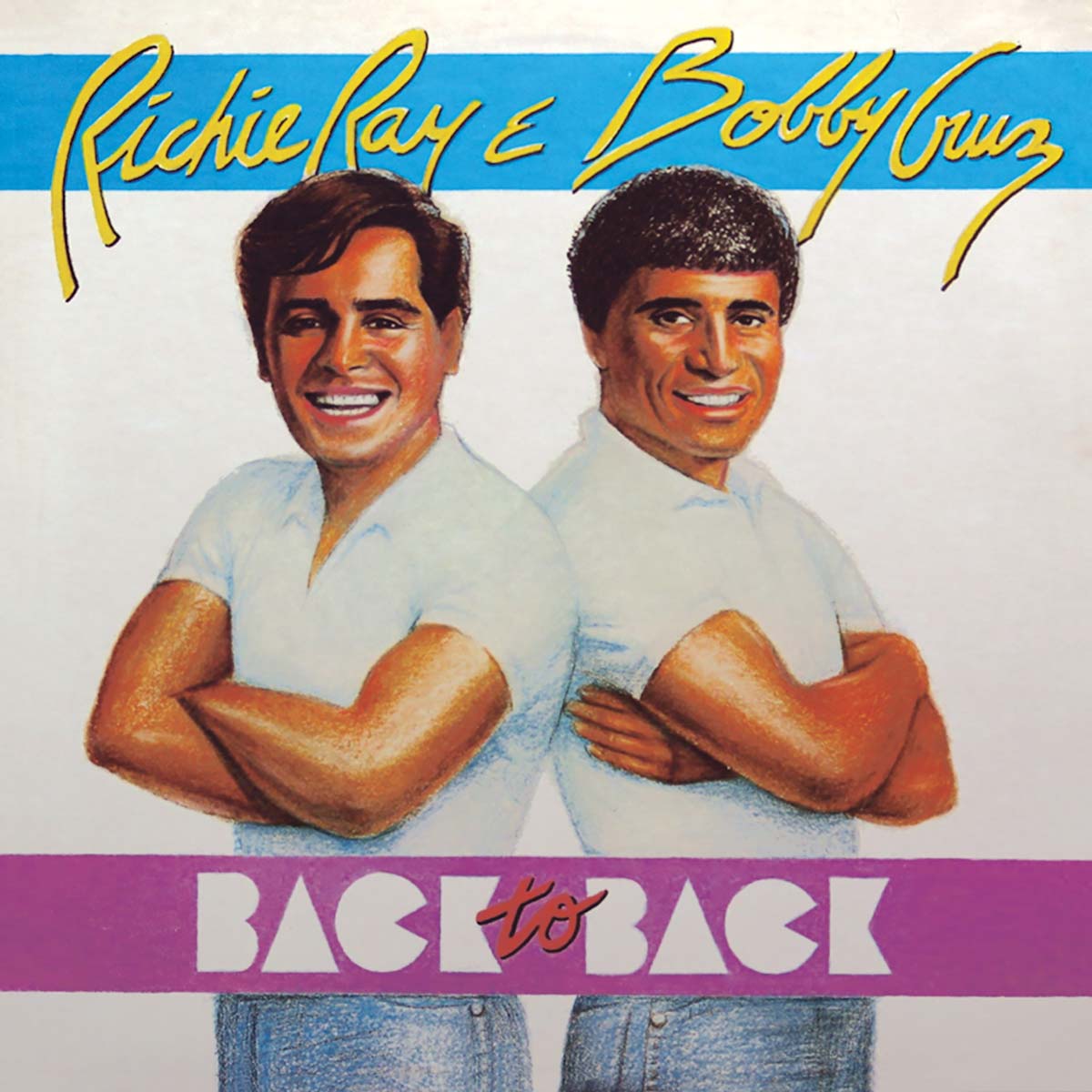
The story of Ricardo Ray and Bobby Cruz can be easily divided into two chapters: before and after their conversion to Christianity. The duo’s discography could easily yield two separate CDs in the La Herencia series. If their sessions for the Alegre, Tico and Vaya labels are a treasure trove of salsa gems, the albums that they recorded following 1975 showcase Christian swing at its most original, with a more mature Richie Ray fusing Afro-Caribbean rhythms with novel elements of jazz and classical music. Richie and Bobby met as teenagers, growing together in Brooklyn.
Their mothers, Cristina and Goyita, worked at a factory together. Richie and his brother Raymond were encouraged to play music by their father Pacífico. Bobby, on the other hand, discovered the feeling of bolero and the cadence of island culture during his childhood in Hormigueros, a tiny village on the Southeast corner of Puerto Rico. In Brooklyn, they were bewitched by the spell of music and the realities of the street, at a time when young Latinos had to join a gang if they wanted to survive racial discrimination and violence towards Hispanics, particularly those of Puerto Rican origin. Richie, trained in classical music at the Juilliard School Of Music, was the quiet one. Bobby, the leader of an orchestra where he played guitar and bass, knew more about life. Together, they contributed to the development of salsa, a term that was used in the late ’60s by Venezuelan radio DJ Phidias Danilo Escalona to describe the irresistible music that the duo was making during the era of the boogaloo and the shing-aling.
Bobby wrote the lyrics. Ricardo did the music and orchestrations. Their first albums for Fonseca Records secured them a lucrative contract with the Tico-Alegre label owned by Morris Levy, who delegated to Morris Perlsman, the unforgettable Pancho Cristal, the supervision of albums such as Se Soltó, Jala Jala y Boogaloo, Los Durísimos, Agúzate, and others. Kings of Salsa The melodious tenor of Bobby Cruz; the brilliant trumpets of Pedro Chaparro and Adolphus “Doc” Cheatham; the steamy beat of the jala jala and Ricardo’s talent for enriching his compositions with melodies and harmonies lifted from Mozart, Beethoven, Bach and Chopin quickly established Los Durísimos in the New York music scene, winning the approval of the demanding crowds at the Palladium, the Bronx Music Palace, the Riverside Plaza Hotel, and other venues. They were soon known as the Kings of Salsa, a name given to them by DJ Escalona, host and producer of the popular radio show La Hora del Sabor y el Bembé. The two volumes of Jala Jala y Boogaloo, with a more assured Bobby Cruz on both boleros and upbeat numbers thanks to the influence of his mentor Rafael “Chivirico” Dávila, were a success.
Even though during the hippie era they embarked on experiments such as Los Durísimos Y Yo, with Puerto Rican singer Nydia Caro, and Let’s Get Down To The Real Nitty Gritty, Richie and Bobby ended up consolidating their popularity with the releases of Agúzate and El Diferente, a classic released on the United Artists label. To Puerto Rico With the album El bestial Sonido de Ricardo Ray & Bobby Cruz, recorded with singer Miki Vimari, the Kings of Salsa established their new base of operations in Puerto Rico. The collaboration of trumpet players Maelo and Cocolía was on the same level as the combination of Doc Cheatham and Pedro Chaparro. And yet, Doc was somewhat superior on the strength of his vast experience in the jazz world, as evidenced on tracks such as “Mr. Trumpet Man” and “Suite Noro Morales.” That said, both Cocolía and Maelo were extraordinary musicians, and they had no difficulty performing the classical snippets that Richie incorporated into songs like “Sonido Bestial” and “Guaguancó Triste.” As a performer of both boleros and guarachas, Miki was part of an unforgettable duet with Bobby – their version of Armando Manzanero’s “Yo Sé Que Te Amo, which is superior to the one by Nydia Caro on Los Durísimos Y Yo. Goodbye To Salsa Richie and Bobby have stated in numerous interviews that they enjoyed fortune, women, pleasure and fame. The subject of santería was a common theme in the repertoire of the popular singers and orchestras of the time. Los Durísimos were no exception. They performed “Chacha Huele A Changó,” “Lo Atara La Arache,” and other hits that they would delete from their repertoire once they converted to Christianity. “Gloria A Dios,” included on Jammin’ Live, was succeeded by “Jesús En El Jardín,” from the musical Jesus Christ Superstar, and the Palito Ortega ballad “Le Llaman Jesús,” included on the Décimo Aniversario LP. Richie converted in 1974, and Bobby followed a few months later. It was a radical change. Christ had touched their hearts, filling their souls with unprecedented amounts of peace and joy.
Reconstrucción was the second (first one for Vaya Records) of almost 20 albums of religious content, released by Fania and the Riboje imprint over the span of a decade. The two men separated in the late ’80s, so that they could each focus on his own ministry. Los Durísimos Strike Back The 1998 release of the salsa album Más Duro Que Antes that Richie recorded with singers Tito Santiago, Luis Samuel Prieto and Sixto Aponte paved the way for an eventual reunion with Bobby for a series of concerts at the Centro de Bellas Artes in Santurce and the Coliseo Rubén Rodríguez in Bayamón. This event marked his return to secular salsa, albeit with subtle changes in the lyrics of his repertoire. Their first secular studio album in almost three decades came out in 2005. Entitled Que Vuelva La Música, it was an obvious allusion to the sorry state of the salsa scene in the new millennium. All in all, Los Durísimos have released over a hundred albums. In 2007, Bobby returned to the days of “Canta Para Ti” and “Amor En La Escuela” with the release of the bolero CD Románticos De Ayer, Hoy Y Siempre. To celebrate the 25th anniversary of the Centro de Bellas Artes in Santurce, Puerto Rico, they released the album A Lifetime Of Hits, including “La Zafra,” “Guaguancó Raro,” “Mi Mayoral,” “Mr. Trumpet Man,” “A Mi Manera,” “Sonido Bestial” and “Mi Bandera.” The original versions of these songs, however, can now be found in this entry of the La Herencia series – the most explosive collection in the fruitful career of Richie Ray and Bobby Cruz.
Enjoy it. Concept, compilation and liner notes by Jaime Torres Torres





